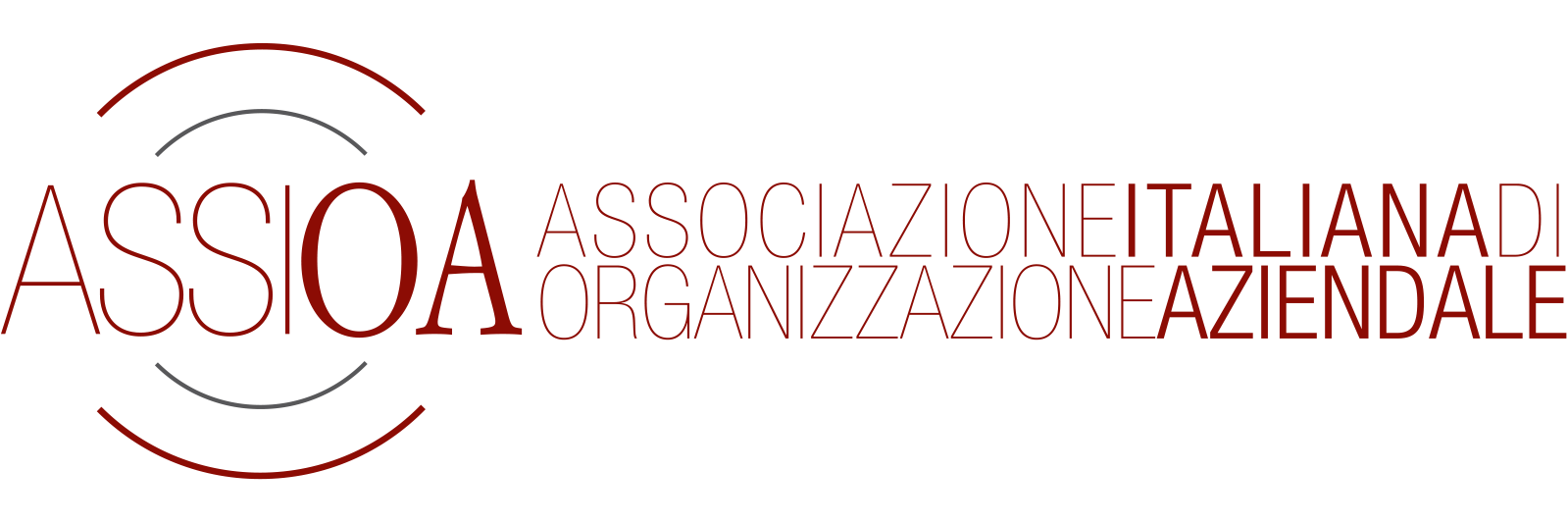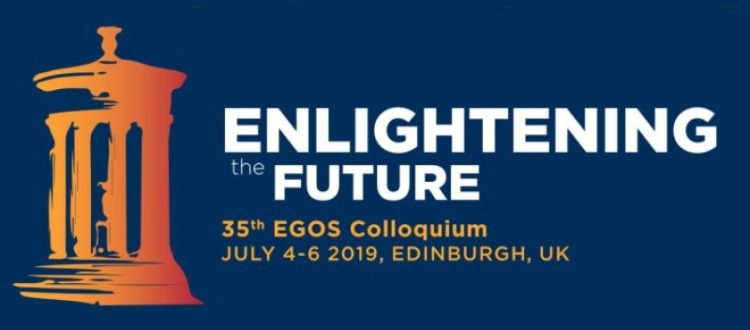EGOS conference a Edinburgo nel 2019
Sub-theme 25: Institutional Theory and Problem-driven Research: The Challenge of Normativity
Organizzatori:
Florian Überbacher, University of Zurich
Giuseppe Delmestri, WU – Vienna University of Economics and Business
Emilio Marti, Erasmus University Rotterdam
Tema
Organization and management scholars increasingly recognize the need to tackle grand societal challenges (e.g. Ferraro et al., 2015; George et al., 2016), such as the UN Sustainable Development Goals (SDGs). An international academic movement is on the way to advance responsible research in business and management (RRBM, 2017). This debate has been particularly intense in institutional theory, one of the dominant streams of research in organization studies (Greenwood et al., 2017). Scholars are increasingly calling for institutional research that is more problem-driven (e.g., Amis et al., 2017; Davis & Marquis, 2005; Gehman et al., 2016) and thus not only aims “to understand grand social challenges but to affect them and in so doing change the world” (Hampel et al., 2017, p. 581). For example, there is a need to say more about how to undertake institutional reforms, how to design and defend institutional structures that protect precarious values (Kraatz et al., 2010), and to give specific policy recommendations (Scott, 2014). To advance problem-driven research, institutional scholars have also called for new research methods, such as “participatory action research” whereby the stakeholders affected by the social problems under study are understood “as active, engaged, and equal participants in the research process” (Dover & Lawrence, 2010: 307).
A key, yet underexplored issue within that debate is the question of normativity. When aiming to tackle grand challenges, institutional scholars venture into territories that are value-laden (see Ezzamel & Willmott, 2014; Marti & Scherer, 2016). However, institutional scholars remain remarkably silent about what makes institutions good or bad in a prescriptive, normative sense (Überbacher et al., 2018). Likewise, apart from a few notable exceptions (e.g. Lok, 2017), institutional scholars rarely reflect upon the normative foundations on which they build their research (for a critique see Willmott, 2011). Yet, researchers who want to engage in problem-driven research and address grand challenges must make the normative assumptions and implications of their research explicit and thereby actively deal with normativity. Otherwise, they risk making claims and giving recommendations that are ill-founded and ultimately irrelevant. We thus argue that a better understanding of the role of normativity is critical to strengthen problem-driven research within institutional theory.
In this sub-theme, we create a platform where institutional scholars with an interest in grand challenges, such as the SDGs, can further clarify the normative dimension of their research. Thereby, the aim is to help them develop institutional scholarship that is more problem-driven and that matters more. Toward this end, we welcome two types of studies:
First, we welcome papers that use institutional theory for problem-driven research on grand challenges. Researchers who submit a manuscript to the sub-theme should reflect on the normative foundations of their case and/or draw out the normative implications of their research for policy-makers and other stakeholders. Participants could, for instance, reflect on one of the following issues and questions:
- Normativity of institutions: What role do values and moral emotions play for institutions? What are the unintended normative consequences of institutions?
- Normativity of institutional work: What makes attempts to create, maintain, or defend institutions good or bad? How do actors mobilize normativity for institutional work?
- Normativity of institutional fields: How should institutional fields be organized so that SDGs can be productively addressed? How do institutional fields influence the distribution of benefits and burdens within society?
Second, we welcome papers that reflect on the meta-level on the role of normativity within problem-driven institutional research. Historically, institutional scholarship has been conceived of as theory-driven and value-free. Here, we welcome papers that focus on how the institutional community can productively engage with problem-driven and normatively informed scholarship, and how it can rely on these adaptations to enlarge the institutional paradigm. We thus invite contributions that address questions such as:
- Normativity and institutional theory building: How can we make theory building in institutional research more normatively informed and problem-driven? How can institutional theory building incorporate a more explicitly normative stand-point?
- Normativity and institutional research methods: How can research methods in institutional analysis become more normatively informed? Which research designs are best suited for normatively informed institutional scholarship?
The purpose of the sub-theme is to help make institutional research more engaged and relevant for society. By bringing together institutional scholars who focus on grand challenges with institutional scholars who reflect about normativity on a meta-level, we aim to foster a shared understanding of how scholars can develop descriptive and normative insights that are relevant for theory and practice.
References
- Amis, J., Munir, K., & Mair, J. (2017): “Institutions and Economic Inequality.” In: R. Greenwood, C. Oliver, T.B. Lawrence & R.E Meyer (eds.): The SAGE Handbook of Organizational Institutionalism, 2nd ed. Thousand Oaks: SAGE Publications, 705–736.
- Davis, G.F., & Marquis, C. (2005): “Prospects for Organization Theory in the Early Twenty-First Century: Institutional Fields and Mechanisms.” Organization Science, 16 (4), 332–343.
- Dover, G., & Lawrence, T. B. (2010): “A Gap Year for Institutional Theory: Integrating the Study of Institutional Work and Participatory Action Research.” Journal of Management Inquiry, 19 (4), 305–316.
- Ezzamel, M., & Willmott, H. (2014): “Registering ‘the Ethical’ in Organization Theory Formation: Towards the Disclosure of an ‘Invisible Force’.” Organization Studies, 35 (7), 1013–1039.
- Ferraro, F., Etzion, D., & Gehman, J. (2015): “Tackling Grand Challenges Pragmatically: Robust Action Revisited.” Organization Studies, 36, 363–390.
- Gehman, J., Lounsbury, M., & Greenwood, R. (2016): “How Institutions Matter: From the Micro Foundations of Institutional Impacts to the Macro Consequences of Institutional Arrangements.” Research in the Sociology of Organizations, 48A, 1–34.
- George, G., Howard-Grenville, J., Joshi, A., & Tihanyi, L. (2016): “Understanding and Tackling Societal Grand Challenges through Management Research.” Academy of Management Journal, 59, 1880–1895.
- Greenwood, R., Oliver, C., Lawrence, T., & Meyer, R.E. (eds.) (2017): The SAGE Handbook of Organizational Institutionalism, 2nd ed. Thousand Oaks: SAGE Publications.
- Hampel, C.E., Lawrence, T.B., & Tracey, P. (2017): “Institutional Work: Taking Stock and Making It Matter.” In: R. Greenwood, C. Oliver, T.B. Lawrence & R.E. Meyer (eds.): The SAGE Handbook of Organizational Institutionalism, 2nd ed. Thousand Oaks: SAGE Publications, 558–590.
- Kraatz, M. S., Ventresca, M.J., & Deng, L. (2010): “Precarious Values and Mundane Innovations: Enrollment Management in American Liberal Arts Colleges.” Academy of Management Journal, 53 (6), 1521–1545.
- Lok, J. (2017): “Why (and How) Institutional Theory Can Be Critical: Addressing the Challenge to Institutional Theory’s Critical Turn.” Journal of Management Inquiry, first published online on October 6, 2017, http://journals.sagepub.com/doi/10.1177/1056492617732832.
- Marti, E., & Scherer, A.G. (2016): “Financial Regulation and Social Welfare: The Critical Contribution of Management Theory.” Academy of Management Review, 41 (2), 298–323.
- RRBM – Responsible Research in Business & Management (2017): Position Paper: A Vision of Responsible Research in Business and Management: Striving for Useful and Credible Knowledge, https://www.rrbm.network/position-paper/.
- Überbacher, F., Delmestri, G., & Goodrick, E. (2018): The Challenge of Engaging with Grand Challenges: The Need for an Ethically Informed Institutional Scholarship. Paper presented in sub-theme 29 at the 34th EGOS Colloquium in Tallinn (Estonia), July 5–7, 2018.
- Willmott, H. (2011): “‘Institutional Work’ for What? Problems and Prospects of Institutional Theory.” Journal of Management Inquiry, 20 (1), 67–72.



